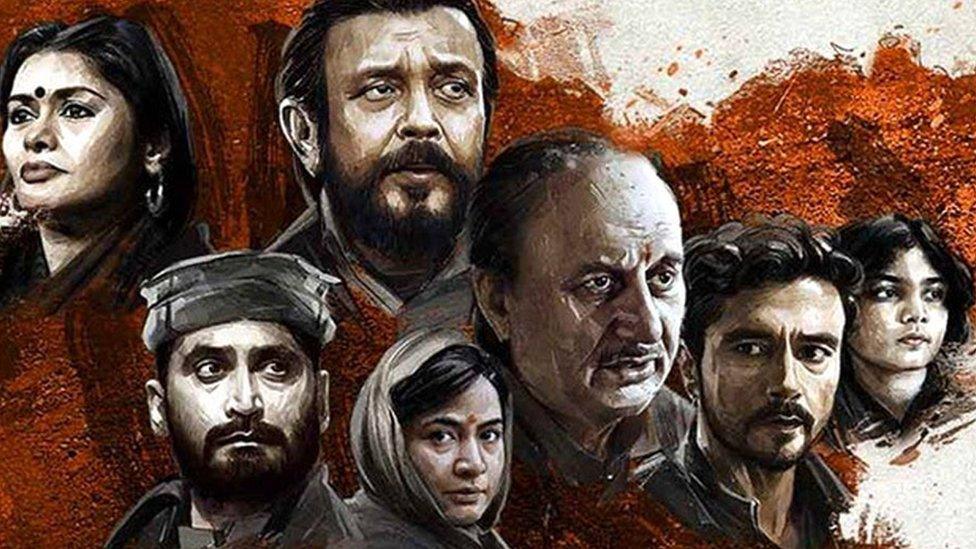Kerala: Why Iranian filmmaker Mahnaz Mohammadi sent lock of hair to India film festival
- Published
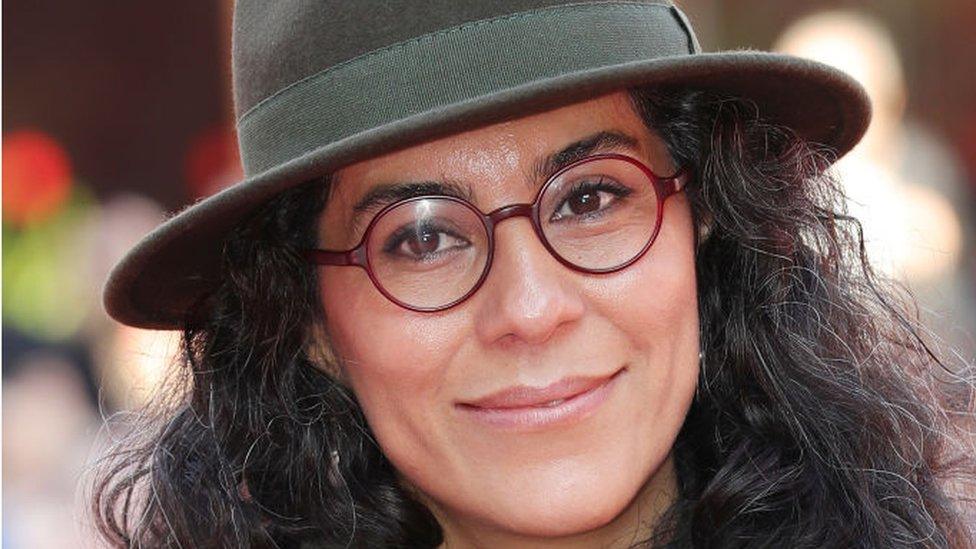
Mahnaz Mohammadi sent a lock of her hair to the International Film Festival of Kerala
An Iranian filmmaker recently hit the headlines in India when she sent a lock of her hair to a film festival in the southern state of Kerala.
Mahnaz Mohammadi could not travel to India last week to receive the Spirit of Cinema award at the International Film Festival of Kerala (IFFK).
The award was introduced in 2021 to honour filmmakers "whose passion for cinema is unflinchingly carried forward in spite of the adversaries faced by them".
An outspoken critic of the Iranian government, Ms Mohammadi was unable to renew her passport, which is set to expire in March.
Greek filmmaker Athina Rachel Tsangari and jury member at IFFK received the award on her behalf at a ceremony held in Thiruvananthapuram city on 9 December.
Ms Tsangari then held the lock of Ms Mohammadi's hair as the audience erupted in applause and cheers.
"Cut hair is the symbol of the tragedy that we face every day and every moment," Ms Mohammadi told the BBC in an email interview, adding that she "could not stop crying" after she saw the response she received at the film festival.
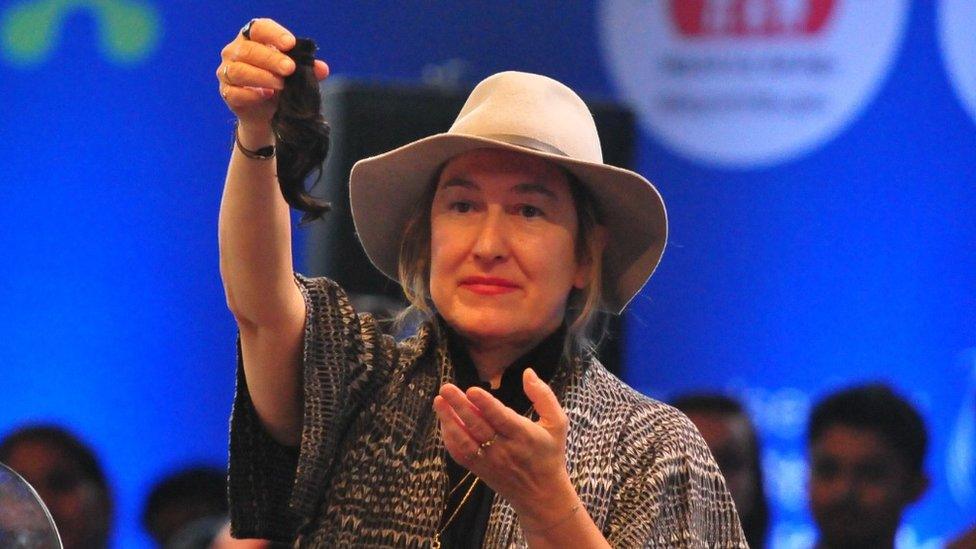
The audience cheered when the lock of hair was displayed
For months, women in Iran have been protesting against the stringent hijab laws, which require all women to wear a headscarf and loose-fitting clothing that disguises their figures in public.
Protests began after the death in September of Mahsa Amini, a Kurdish woman from the western city of Saqqez who fell into a coma after being detained by morality police in Tehran for allegedly violating the hijab law.
Since then, Iranian women have burned their hijabs on bonfires and women from around the world, have posted videos of themselves cutting their hair in solidarity with the protesters.
The unrest is now considered the most serious challenge to the Islamic Republic since its inception in 1979. Rights activists say hundreds of people have been killed by government forces so far.
Ms Mohammadi said the demonstrations were an extension of Iranian women's right to live with freedom.
"The protesters have nothing to lose. They are fighting with their own lives because the totalitarian government has left them with no alternative," she added.
Born in Tehran, Ms Mohammadi has been a prominent voice for women's rights in Iran for the last two decades.
Her debut documentary Women Without Shadows (2003) on the lives of homeless and abandoned women in a state-run shelter has won several awards at international film festivals. Her 2019 feature film Son Mother premiered at the 44th Toronto International Film Festival and won the special jury award at the 14th Rome Film Fest.
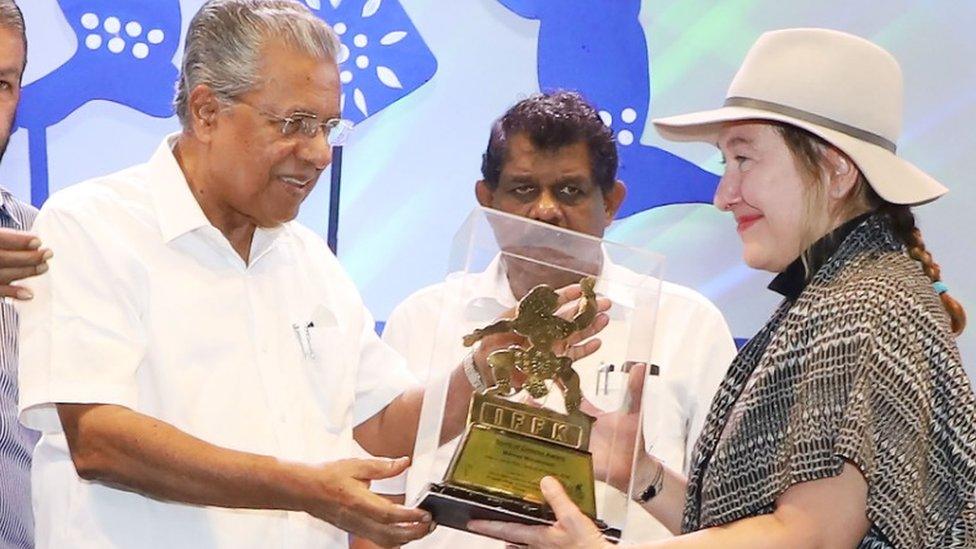
Athina Rachel Tsangari received the award on Ms Mohammadi's behalf
The 47-year-old filmmaker is also not new to controversies.
In 2008, the Iranian government imposed a travel ban on her after the release of her documentary Travelogue. Shot on a train between Tehran and Ankara, the film documented why so many Iranians were fleeing the country.
A year before that, she was arrested for protesting against the trial of other women rights activists, and for placing a wreath on the grave of Neda Agha Sultan, a 26-year-old woman who was shot during protests against the re-election of Iranian President Mahmoud Ahmedinejad.
In 2014, she had to serve a five-year sentence "for running propaganda against the Iranian regime".
"All my life was spent enduring restrictions," Ms Mohammad said, adding that men in Iran "have benefited" from the country's "patriarchal system" while women continue to "remain in bondage because of their gender".
Ms Mohammadi said that for Iranian woman, the hijab was a "symbol of many discriminations" as it was "forced on us at school at the age of seven and covered all my thoughts".
The protests in Iran have come at a time when the hijab has sparked polarising debate in India, after the southern state of Karnataka barred Muslim girls from wearing it in schools and colleges earlier this year. The order was challenged in India's Supreme Court which failed to deliver a verdict on the issue in October.
Asked about her views on the ongoing debate in India, Ms Mohammadi said: "We should not be against the hijab. We are for the women to have the right to choose whether to wear the hijab.''

Read more India stories from the BBC:

- Published26 August 2022
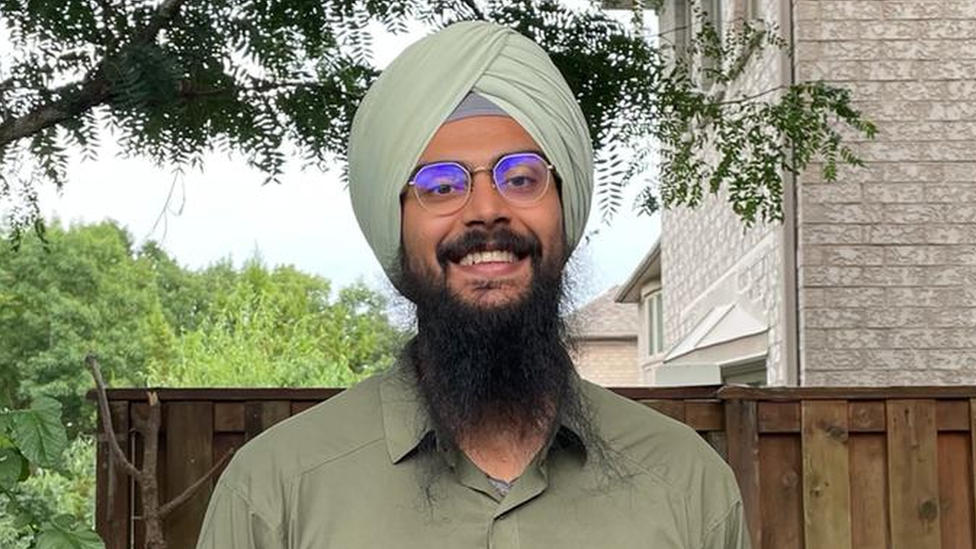
- Published30 November 2022
